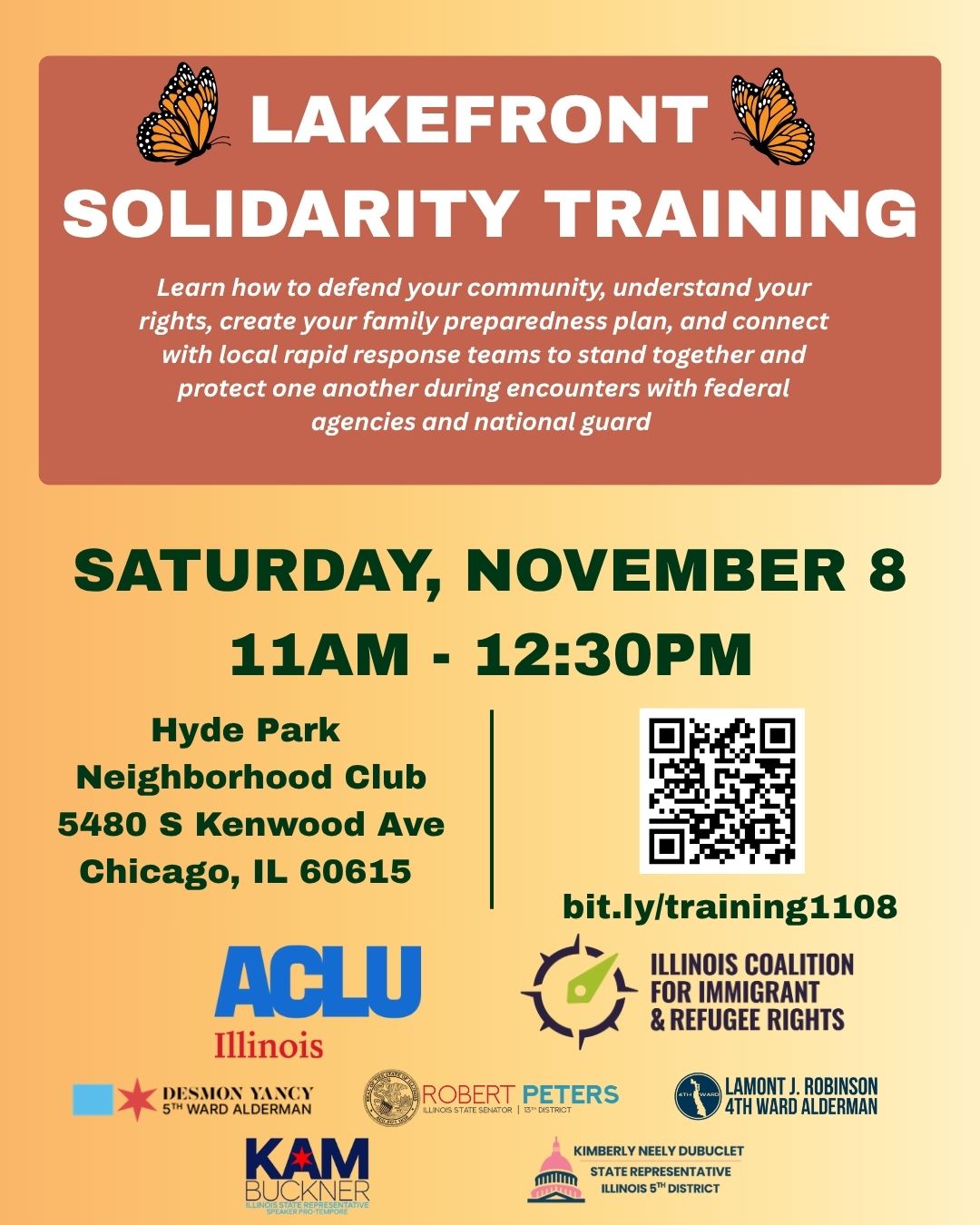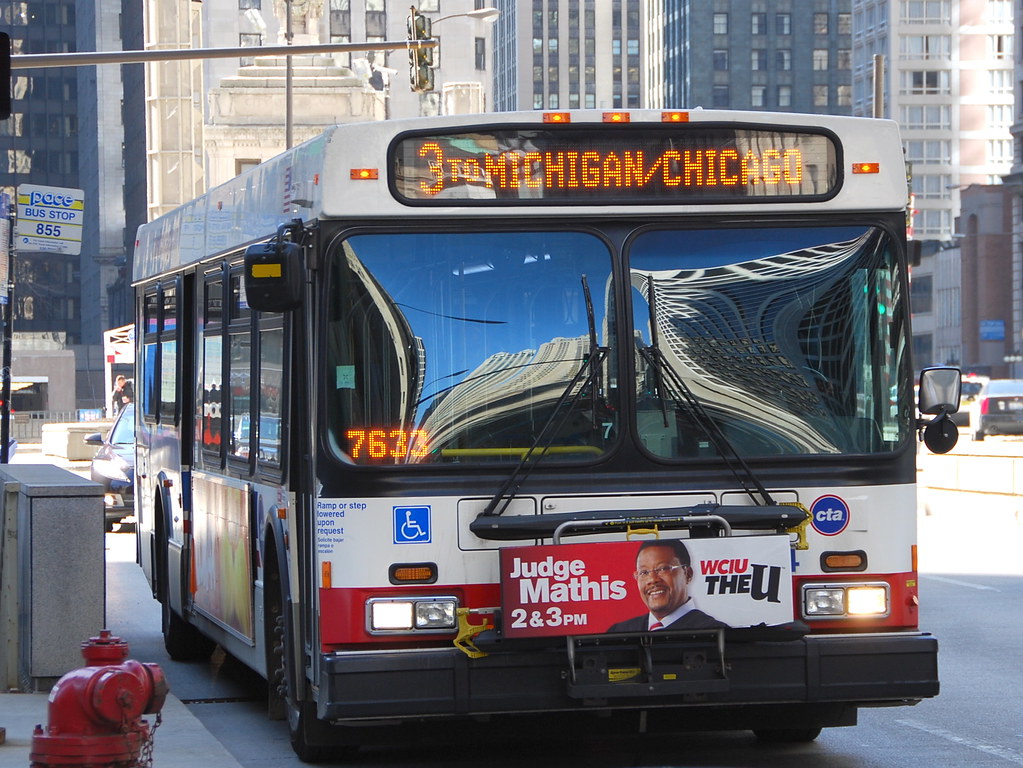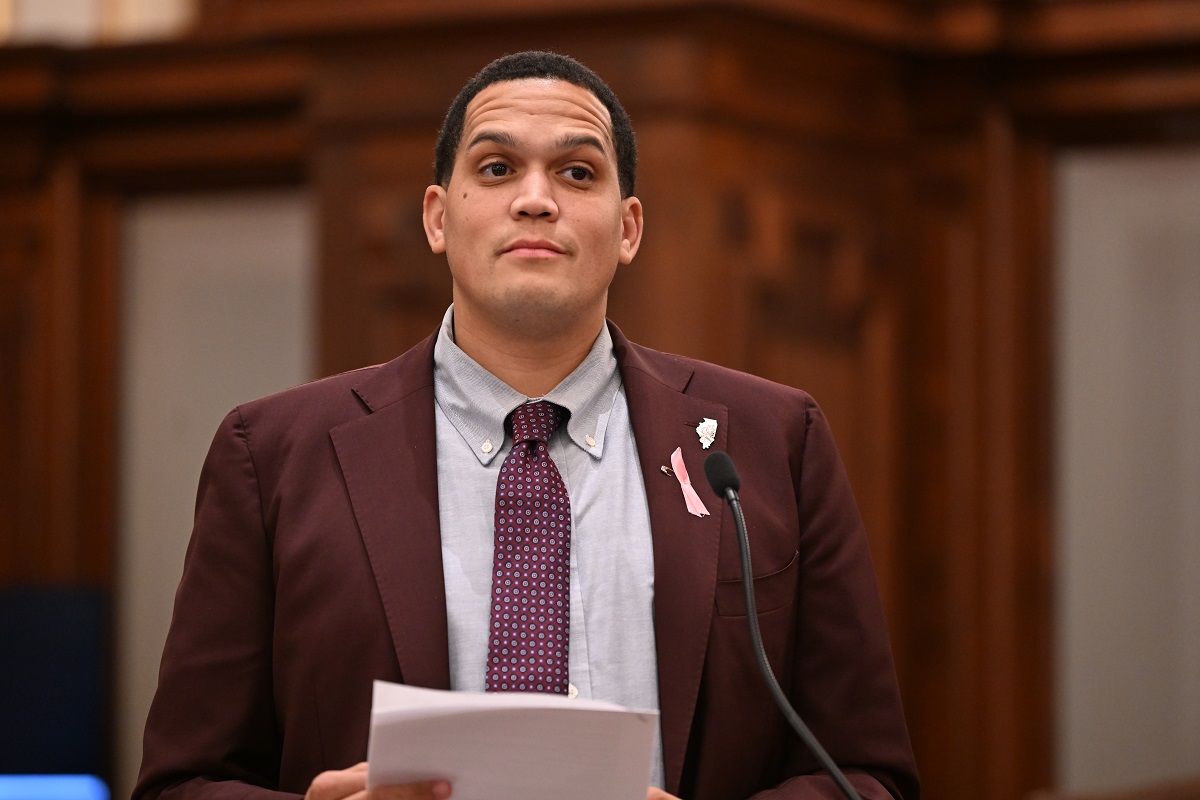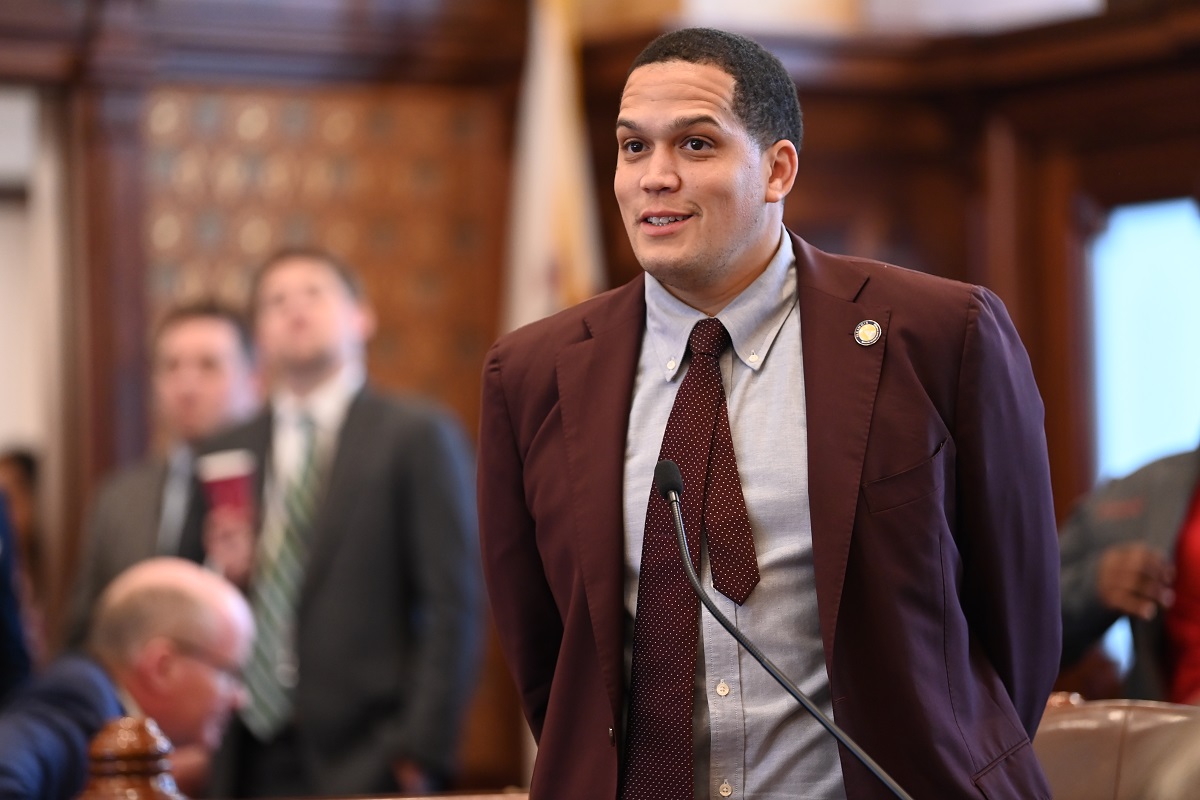- Details
- Category: Press Releases
 CHICAGO — To equip residents, businesses and families with the information, tools and collective strategies needed to respond to federal immigration tactics, State Senator Robert Peters is joining South Side electeds and community organizations at a solidarity training Saturday.
CHICAGO — To equip residents, businesses and families with the information, tools and collective strategies needed to respond to federal immigration tactics, State Senator Robert Peters is joining South Side electeds and community organizations at a solidarity training Saturday.
“No matter your status, you have rights in Illinois,” said Peters (D-Chicago). “From asking questions to when to stay silent, knowing your rights can protect you if approached by ICE.”
The training will be Saturday, Nov. 8 from 11 a.m. to 12:30 p.m. at the Hyde Park Neighborhood Club, located at 5480 S. Kenwood Ave., Chicago, IL 60615. Peters will co-host the event in collaboration with State Representative Kam Buckner, State Representative Kimberly Dubuclet, 4th Ward Alderman Lamont J. Robinson, 5th Ward Alderman Desmon Yancy, Illinois ACLU and the Illinois Coalition for Immigrant and Refugee Rights. The neighbors of the Kenwood-Hyde Park-Woodlawn Rapid Response will also assist with community building initiatives at the event.
Read more: South Side leaders, community organizations to host Lakefront Solidarity Training
- Details
- Category: Press Releases
 SPRINGFIELD — A measure aimed at addressing issues facing the current public transit system in Illinois is headed to the governor, thanks to support from State Senator Robert Peters.
SPRINGFIELD — A measure aimed at addressing issues facing the current public transit system in Illinois is headed to the governor, thanks to support from State Senator Robert Peters.
“Reliable, affordable and equitable public transit isn’t just about convenience – it’s the backbone of our state,” said Peters (D-Chicago). “We’re putting forth an initiative that places working people first – connecting them to jobs, to their families and to opportunities – all while implementing no new taxes and no increase in current taxes. This is a huge win for communities across Illinois.”
Senate Bill 2111 would create the Northern Illinois Transit Authority, replacing the Regional Transportation Authority. The NITA board would comprise of 20 members, with five appointments each from the governor, mayor of Chicago and Cook County Board president, as well as one from each chair or county executive of the collar county boards of DuPage, Kane, McHenry, Lake and Will.
Read more: Peters: Transit reform is a win for communities across Illinois
- Details
- Category: Press Releases
 SPRINGFIELD — A major property tax relief package intended to give Illinois residents tangible tools to stay financially secure has passed the Senate with support from State Senator Robert Peters.
SPRINGFIELD — A major property tax relief package intended to give Illinois residents tangible tools to stay financially secure has passed the Senate with support from State Senator Robert Peters.
“This measure is about fairness and compassion for our most vulnerable residents,” said Peters (D-Chicago), who chaired the Property Tax Payment Plan Task Force in 2024. “Rising property taxes shouldn’t force seniors or families out of the home they’ve worked their whole lives to afford, and this bill would ensure they don’t.”
Senate bill 642 would deliver critical updates to help seniors on fixed incomes and help families facing economic challenges manage rising property tax costs. Under the measure, the maximum income limit for the Low-Income Senior Citizens Assessment Freeze Homestead Exemption would increase substantially over the next several years, beginning at $75,000 for taxable year 2026, increasing to $77,000 for taxable year 2027 and settling at $79,000 for taxable year 2028 and beyond.
Read more: Peters-supported measure to expand property tax relief for seniors
- Details
- Category: Press Releases
 SPRINGFIELD — An initiative from State Senator Robert Peters aims to raise the minimum age at which minors can be detained and limit the use of detention in certain situations where the minor is not charged with a violent crime, making it clear the state is moving away from harsh detention practices and prioritizing rehabilitation.
SPRINGFIELD — An initiative from State Senator Robert Peters aims to raise the minimum age at which minors can be detained and limit the use of detention in certain situations where the minor is not charged with a violent crime, making it clear the state is moving away from harsh detention practices and prioritizing rehabilitation.
“Our juvenile justice system should focus on rehabilitation over punishment,” said Peters (D-Chicago). “By raising the age at which a minor can be detained and emphasizing alternative methods, we’re giving young people a fair chance at reformation without subjecting them to the damaging effects of detention at an early age.”
Peters’ measure makes numerous improvements to Illinois’ juvenile justice system. First, the bill raises the age at which a minor may be detained from 10 years old to 12 years old in 2026 and then to 13 years old – in some situations – in 2027. Through the measure, arrest would only be used as a last resort and under strict conditions, and minors can only be detained if there is probable cause to believe they are delinquent and that immediate and urgent detention is necessary, or if they have repeatedly failed to appear at scheduled hearings.
Read more: Peters’ measure to raise juvenile detention age, focus on rehabilitation
More Articles …
Page 2 of 90




